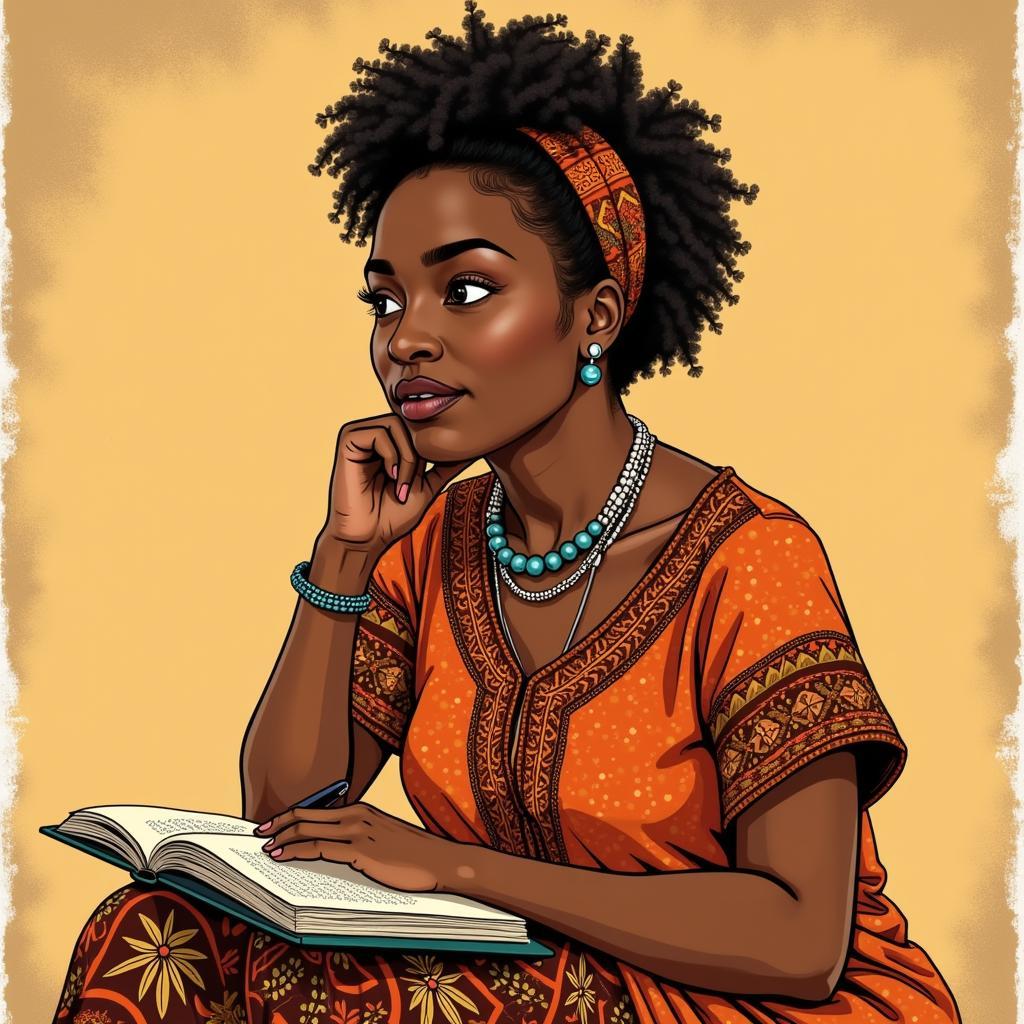African Women, Hijab, and Muslim Identity: Navigating Tradition and Modernity
The intersection of African culture, Muslim faith, and the hijab is a complex and often misunderstood topic. This article explores the diverse experiences of African Muslim women who choose to wear or not wear the hijab, highlighting their agency, resilience, and evolving identities in a rapidly changing world.
The Hijab in Africa: A Diverse Tapestry
The hijab in Africa is not a monolithic entity. Its meaning and practice vary widely across different regions, countries, and even within communities. Factors such as cultural traditions, historical context, socio-economic status, and personal interpretations of Islamic teachings all contribute to this diversity. From the bustling markets of Marrakech to the coastal villages of Zanzibar, the hijab takes on different forms, colors, and styles, reflecting the unique cultural landscapes of the continent.
Beyond the Veil: Understanding the Nuances
Understanding the hijab in Africa requires moving beyond simplistic stereotypes and engaging with the lived experiences of Muslim women. It’s about recognizing that the hijab can be a symbol of faith, modesty, cultural identity, or even resistance against Western influence. For some women, it’s a personal choice reflecting their devotion to Islam. For others, it’s a family tradition or a social norm.
Many African Muslim women view the hijab as empowering, a way to reclaim their agency and express their religious identity in a public space. They see it not as a symbol of oppression, but as a symbol of liberation from the pressures of Western beauty standards and consumerism.
Challenging Western Perceptions
It’s crucial to challenge Western-centric narratives that often portray the hijab as inherently oppressive. These narratives often fail to account for the diverse motivations and experiences of Muslim women, reducing their complex identities to a single garment. Furthermore, such narratives can fuel Islamophobia and prejudice against Muslim communities.
Navigating Modernity: African Muslim Women in a Changing World
African Muslim women are not passive recipients of tradition. They are actively navigating the challenges and opportunities of modernity, shaping their identities and contributing to their communities in meaningful ways. They are entrepreneurs, artists, activists, educators, and leaders, breaking down barriers and challenging stereotypes.
Education and Empowerment
Education plays a vital role in empowering African Muslim women. By gaining access to education, they are equipped with the knowledge and skills to participate fully in society, challenge traditional norms, and advocate for their rights. Many African Muslim women are at the forefront of social change, working to improve their communities and promote gender equality.
The Intersection of Faith and Feminism
The relationship between Islam and feminism is a complex and evolving one. Many African Muslim women embrace both their faith and feminist principles, advocating for women’s rights within an Islamic framework. They challenge patriarchal interpretations of religious texts and strive to create a more just and equitable society for all women.
Choosing to Veil or Unveil: Respecting Individual Choices
Ultimately, the decision to wear or not wear the hijab is a personal one. It’s essential to respect the autonomy and agency of African Muslim women, regardless of their choice. Whether veiled or unveiled, they deserve to be treated with dignity and respect.
Conclusion
The experiences of African Muslim women and their relationship with the hijab are multifaceted and dynamic. Understanding this complexity requires moving beyond stereotypes and engaging with their diverse stories. By listening to their voices and respecting their choices, we can gain a deeper appreciation for the rich tapestry of African Muslim life.
FAQs
- Is the hijab mandatory for all Muslim women in Africa? No, the practice varies widely depending on cultural and personal interpretations of Islamic teachings.
- Do African Muslim women feel oppressed by wearing the hijab? Many African Muslim women view the hijab as empowering and a form of self-expression.
- How does the hijab relate to African cultural identity? The hijab often intersects with existing African cultural practices and traditions, creating unique expressions of identity.
- What challenges do African Muslim women face in the 21st century? They navigate issues such as gender inequality, access to education, and Islamophobia.
- How can we support African Muslim women? By respecting their choices, amplifying their voices, and advocating for their rights.
Need Support?
Contact us 24/7: Phone: +255768904061, Email: [email protected], or visit us at Mbarali DC Mawindi, Kangaga, Tanzania. We have a dedicated customer service team ready to assist you.


